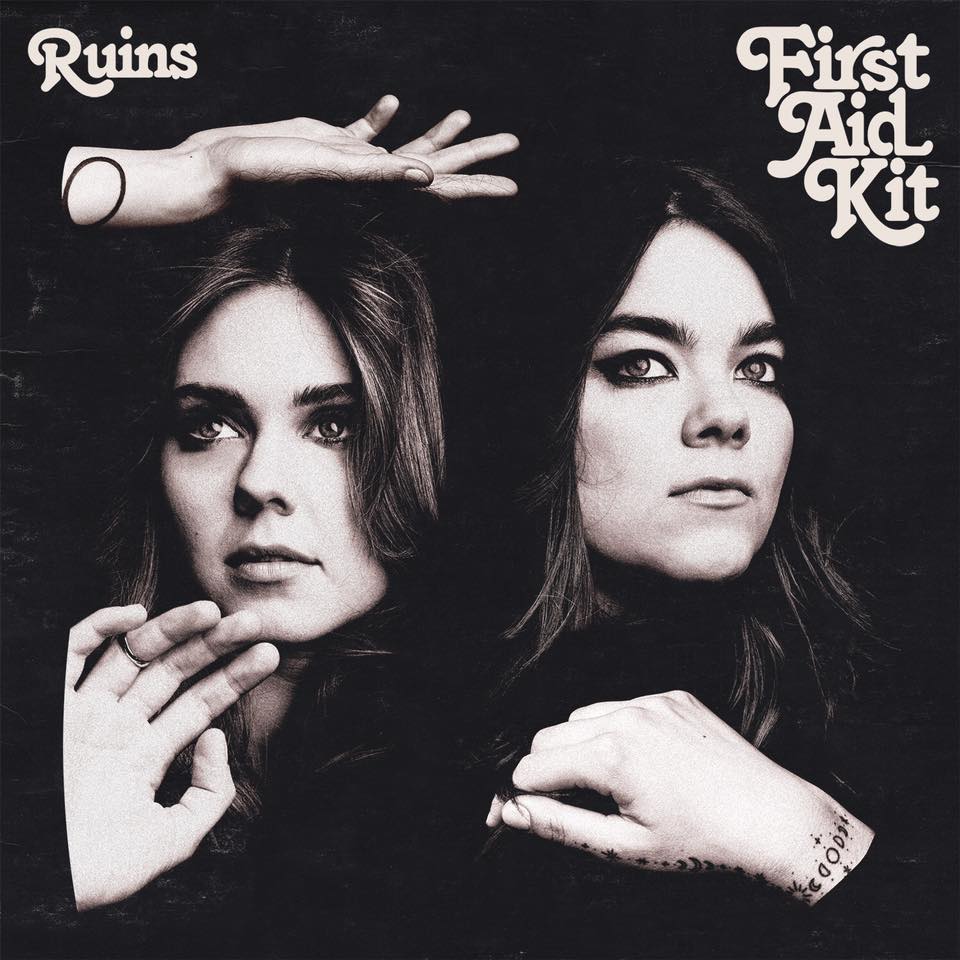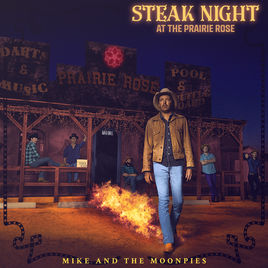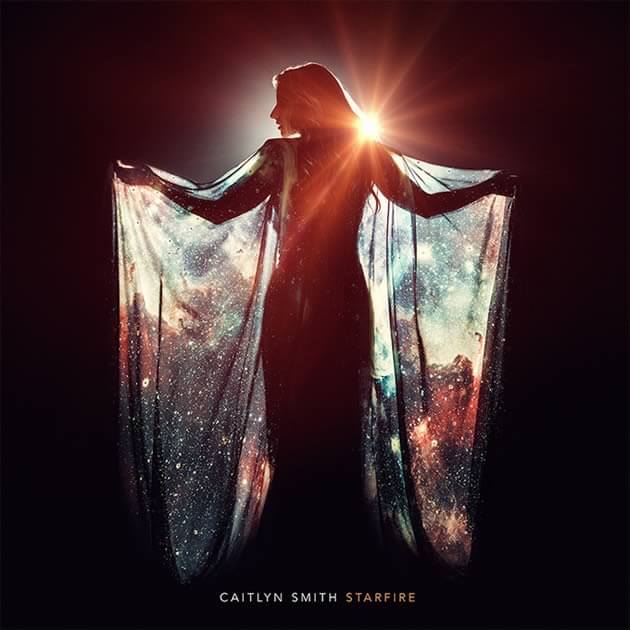For our first collaboration of 2018, Brianna and I discussed Wade Bowen’s first original solo album in four years.
Conversation
Megan: So, Solid Ground. Seems like an appropriate title. Very solid album, and very much feels like Wade Bowen settling fully back into the Texas scene after not making a solo record in four years.
Brianna: I think it’s fitting, too. He’s getting back into the swing of things after a long delay in albums.
Megan: Yeah, it’s certainly nice to have some new Wade Bowen music, well overdue. This one has some nice Mexican flavor as well, like Vaquero from Aaron Watson. I enjoy that. Would be nice to see this continue to be a thing in Texas music.
Brianna: I’m definitely in favor of more Mexican flair in my Texas country. I have a lot of love for the sound of the accordion, so the fact that it shows up here makes me very happy.
Megan: The accordion makes an appearance on several songs. We also get some Spanish guitar licks and even some mariachi style stuff on “Day of the Dead.” This song is one of the highlights for me.
Brianna: “Day of the Dead” is awesome. It both calls to Mexican beliefs and talks about lost love. It’s a standout for me both lyrically and musically.
Megan: Yes, and it has some excellent metaphors, like saying the love between him and his ex has “gone home to Jesus.” Actually, it’s interesting that you make that connection with this song, tying the themes of death and lost love together, because both death and lost love pop up in several places on this album. Or maybe not exactly lost love, but not necessarily love going smoothly. “Couldn’t Make You Love Me” and “Broken Glass” are obvious examples, and “So Long 6th street” alludes to this as well.
Brianna: Also my favorite song, “Anchor.” It also has those metaphors in spades, like the rock versus a stone. He wonders if his partner still loves him, and if he’s her anchor, or if he’s just a rock she drags around. I love it because he’s speaking about a mature relationship, where you think things would be perfect, but instead, he’s wondering if everything has become boring to her.
Megan: “Anchor” is one of my favorites too, and it also explains where the title Solid Ground came from. AS for the death side of the equation, it arrives in the heart of the album on two very different songs. There’s “Death, Dyin’, and Deviled Eggs,” which is reflective and almost peaceful. And then “7:30,” which is either a reference to the time of morning or to the fact the song goes on for over seven minutes–or maybe both–but it captures the exact moment the narrator finds out a loved one has died.
Brianna: Both of those songs are great. “Death, “Dyin’, and Deviled Eggs” explores all of the inane things that we do when someone passes away. Like you said, it’s both sad and peaceful, though it could be seen as partly bitter, seeing as things do go according to a sort of routine whenever there’s a death. It’s an interesting song.
Megan: That’s interesting, I never thought of it in the bitter sense.
Brianna: Well, I just think you could take it as him feeling wrong about how quickly and by rote someone is laid to rest, if that makes sense.
Megan: It makes total sense, good point.
Brianna: As for “7:30,” it puts you right there in the moment. It’s a very painful song, and the fact that things are included like coffee that’s not even cold just makes it all the more real. I will say, though, that I did get a bit bored at the extended instrumental side of things in that song.
Megan: Man, it was exactly the opposite for me. The instrumental allowed me to sit and think of people I’d lost and what that felt like. It was a very real and painful moment for me as a listener that first time, and it’s as if the writers and producers sensed that, like Wade knew he needed to get out of the way of the song and in turn allow that song to become uniquely relatable and heartbreaking to everyone who heard it. I will say that I was not overjoyed by “Acuna” head of the release, but in the album context, “Acuna” was exactly what I needed after this, and it took nearly the whole song to get my head clear. This is why album context and song placement are two sorely underrated concepts.
Brianna: You know, I never thought about that part of the song in those terms. I think you might be onto something there. I agree about “Acuna,” that it’s a song I like better now that I’ve heard the album. I like how reflective it is.
Megan: I think it fits in very well with the Texas theme. It’s very much a Texas record without really being obvious. There’s “So Long 6th Street” about Austin, and that song, and the Mexican undertones, and other little atmospheric things. And something you pointed out to me as well, the excellent cover of “Calling All demons.” I’ll let you tell them more about that because I had not a clue, but the point I’ll make is it’s a very Texas artist thing to do to cover another Texas artist. Also to collaborate with other Texas artists, like he does with Jack Ingram and Miranda Lambert, but not in the way of Nashville, where everyone’s name is always on the track. They do it more out of a sense of family. All those little things point to this being his Texas album. It’s sort of like something you said to me earlier, that Wade Bowen’s made a Texas record without actually saying “Texas.” And I’ll add here, without doing anything dumb and cliché like one would normally do on such an album.
Brianna: He’s made a great Texas record. It does make me wish I knew all the places he talks about because I imagine anyone who does will have a great time with this album. In regards to the cover of “Calling All demons,” I think it’s a good one. It’s slower and less bluesy than when Seth James sang the song on the album Adventus by The Departed, but Wade Bowen certainly makes it his own. His version is more thoughtful, like the majority of the songs on this record.
Megan: I’ll have to hear that version, thanks for bringing my attention to it. As for thoughtful, I think that perfectly sums up this record. Good variety of instrumentation and subjects, and some very interesting songwriting. Not quite perfect, a filler moment or two, but nothing downright bad or even quite skip-worthy. All in all, very solid, like its title suggests. Nice slice of Texas country music. Solid 8.5 from me.
Brianna: I would agree. I do think this album needed some more upbeat moments, (so even though I don’t love “Fell in Love on Whiskey,” I think it was needed.) The instrumentation was very cool. The lyrics were reflective and thoughtful overall. I, too, give this a rating of 8.5. This will probably end up as my favorite Wade Bowen album.



